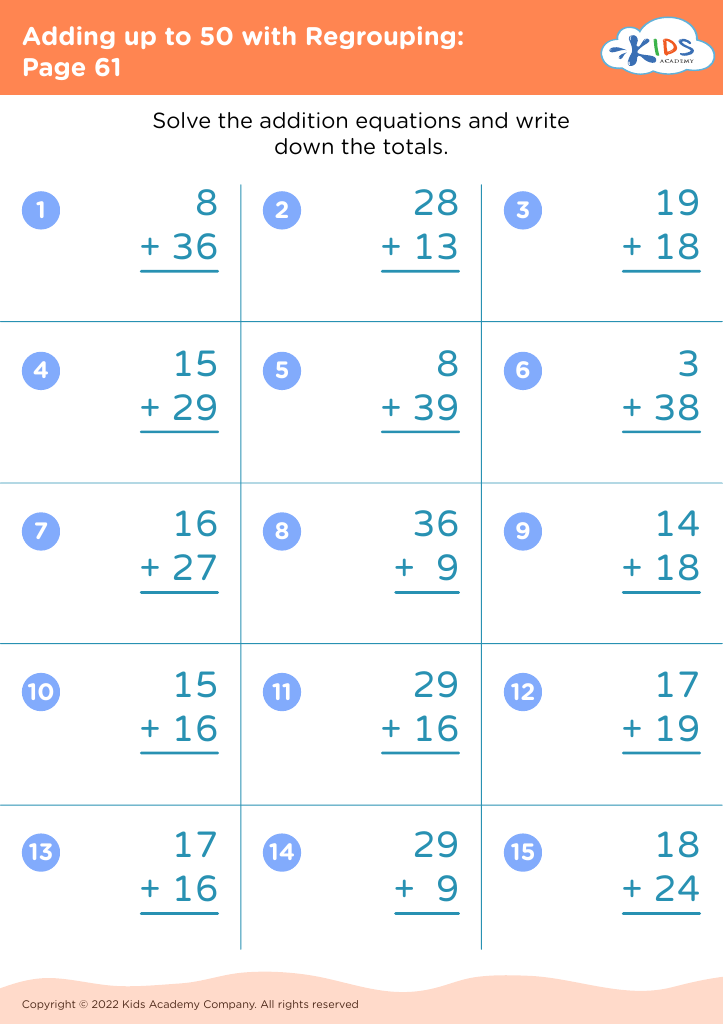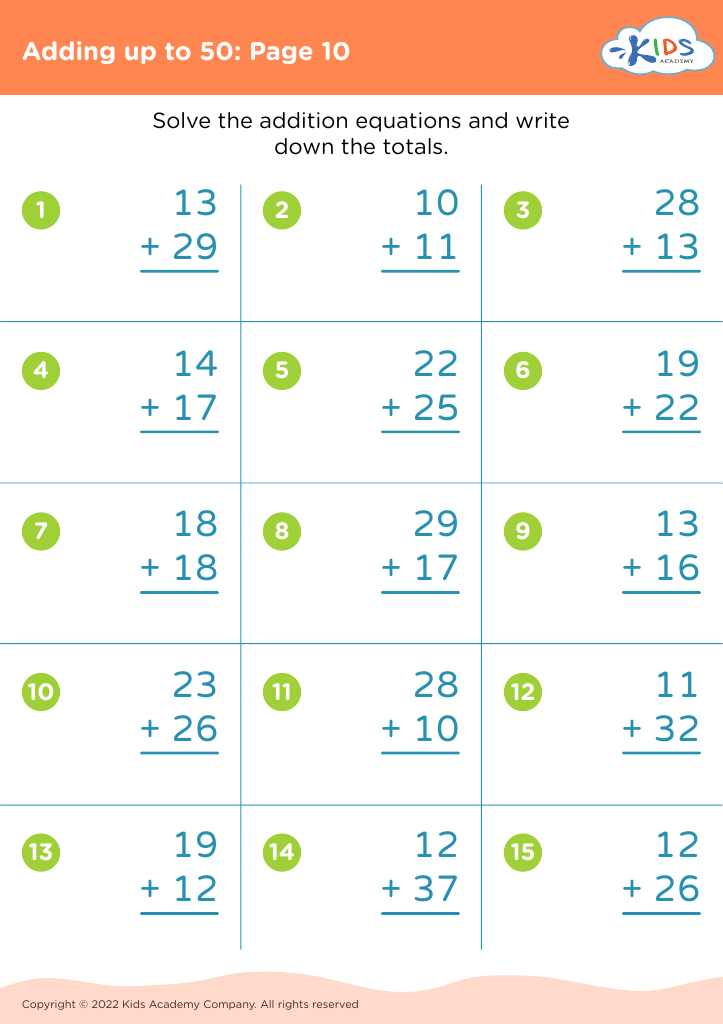Develop critical thinking Adding up to 50 Worksheets for Ages 7-8
3 filtered results
-
From - To
Unlock your child's potential with our "Adding up to 50 Worksheets for Ages 7-8," designed to foster critical thinking skills. Perfect for 1st and 2nd graders, these interactive worksheets challenge kids to solve addition problems while developing logical reasoning and problem-solving abilities. Engaging exercises help build a strong numerical foundation, boost confidence, and encourage independent thought. Each worksheet is crafted by educational experts to make learning math fun and effective. Give your child the tools to succeed and excel in math by enhancing their critical thinking through structured, progressive practice. Discover the path to mathematical mastery today!
Critical thinking skills are essential for children’s cognitive development, particularly for ages 7-8, as they form foundational building blocks for future learning. Engaging in mathematical activities that require adding up to 50 hones critical thinking by challenging students to analyze problems, recognize patterns, and apply logical reasoning.
When parents and teachers encourage children to tackle adding exercises, they not only improve numerical proficiency but also stimulate problem-solving abilities. Tasks like these necessitate understanding mathematical concepts beyond rote memorization; children must comprehend relationships between numbers and operations, fostering deeper learning.
Moreover, critical thinking nurtures independent thinking and decision-making. Children learn to face new challenges confidently and dissect them methodically. This competence is crucial, not just in academics but in daily life, as it enables them to make informed decisions, understand cause-and-effect, and approach problems with inventive solutions.
For teachers, implementing these exercises in the curriculum bridges the gap between fear and confidence in math, making it a more engaging subject. For parents, it extends learning beyond school, creating a supportive educational environment at home. Encouraging critical thinking through math thus equips children with lifelong skills, ensuring they are well-prepared, keen learners ready to tackle advanced concepts with ease.




















